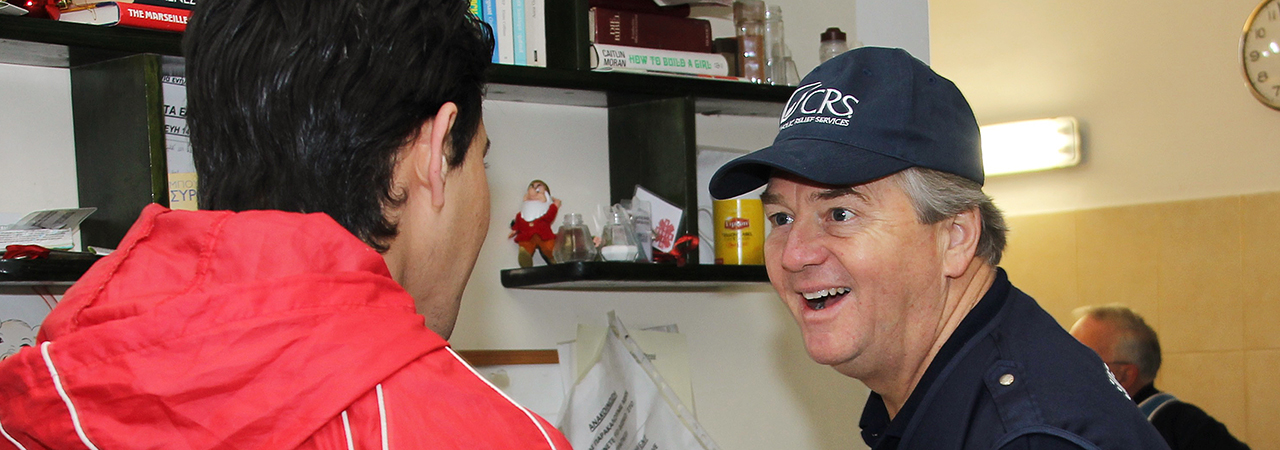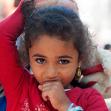

Media CenterUnderstanding Syrian Refugees, One Story at a Time
By: Deacon Steve Swope
On a recent trip to the Balkans, I met Hiat, a young woman in her thirties who is a mother of six. Hiat is one of millions of refugees who’ve fled Syria during the nearly 5-year-old civil war. Her late husband is one of the tens of thousands of civilian casualties of that war.
I met Hiat in Athens, where I traveled with Catholic Relief Services (CRS) as a Global Fellow to witness and bring attention to the plight of families like hers.
“My children have not lived at all. They have done nothing wrong, why should they die?” she asked after telling me her story. Like mothers anywhere else in the world, her greatest worries are for her children. She told me she’d rather die than to see any harm done to them.
Hiat is staying at a hotel, which has been turned into a temporary refugee center for hundreds of people by CRS’ partner, Caritas Greece. She’s a beautiful woman with a wonderful smile that I only got to see during fleeting moments. When we talked, she seemed exhausted and fearful.
I want to tell Hiat’s story because it’s given me a better sense of who Syrian refugees are and what they have left behind. Her anguish is that of a mother on the run, who just a few years ago had a husband, a home, and a future.
Before the war, Hiat lived with her family in the Syrian town of Hama. Her family lived a quiet, middle-class life. Muhammad, her oldest child, went to school, did his homework, and played tennis and soccer.
But things for Hiat and her family began to fall apart when the war started.
The city of Hama is north of the city Homs, where some of the most intense and brutal fighting has taken place.
Following the death of her husband, Hiat decided to leave Syria. She said that with the war raging around them, there was so little food that people were starving. She told me that any semblance of community or society had collapsed - just like the structures around them.
It is not only difficult, but it can be dangerous for a woman to travel to Europe without a male companion. I heard stories of smugglers taking vast sums of money from refugees for transportation when a cheap bus ticket would suffice. She fears some of her children might not survive the onward journey that many Syrians have decided to make to ultimately reach countries like Germany or Sweden.
With the help of CRS and Caritas, Hiat and her children have a warm room in Athens, and they receive two meals a day. Caritas also provides counseling and assistance to help people like her plan for the next phase of their journey.
But even with humanitarian support, Hiat has a tough road ahead.
She says that she doesn’t understand why her family has to go through so much turmoil. She believes that the United States could stop the war, “if they would try.”
So why should her children die? The answer seems simple: They should not die. They should have lives, families, and happiness.
It is our shared responsibility to help Hiat, her children, and the millions of other refugees like them. Christians call this “solidarity.” We are one human family, each person possesses human dignity.
Your children don’t deserve to die, my children don’t deserve to die, and Hiat’s don’t either.
Steve Swope is a deacon in the Archdiocese of Atlanta and a CRS Global Fellow. This essay is excerpted from a blog series about his trip. To read more, visit: http://deaconsview.com/




